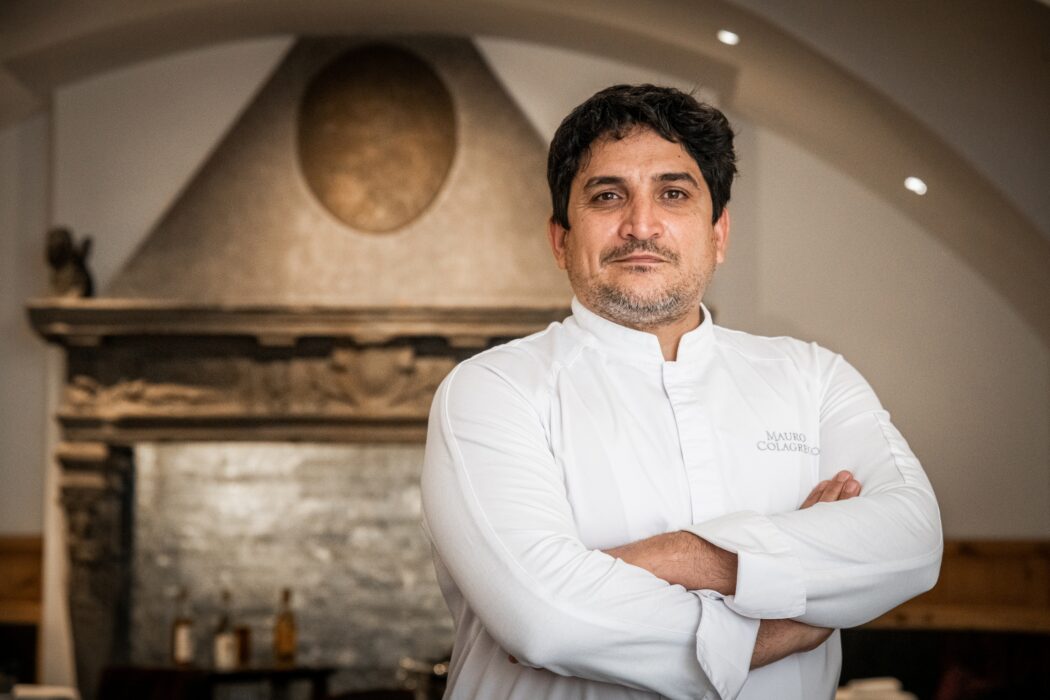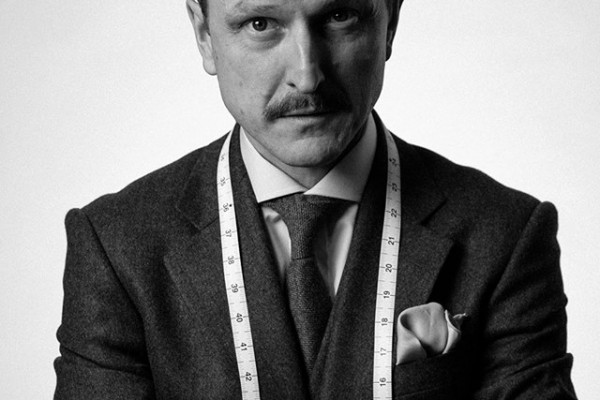2019 was quite a year for Mauro Colagreco. After ten years climbing the World’s Best Restaurants list, Mirazur was ranked number one, and awarded three Michelin stars to boot. Here, he tells our editor, Laith Al-Kaisy, about his rise to stardom, how he defied expectation by opening a new restaurant in the midst of the global pandemic, and what the future holds for how we eat.
We always like to start these interviews by asking how it all started. You were born in Argentina. Here in the UK, we’re not that familiar with Argentinian cuisine. What does it mean to you, and how does it influence your food today?
Octavio Paz, the great Mexican writer, said “Mexicans are descended from the Aztecs, Peruvians from the Incas, and Argentines from the boats”. This is a good summary of the Rioplatense culture, my native region in Argentina – a culture and a cuisine very much influenced by migratory flows, Italian and European cuisine. On the other hand, if you go to the north of Argentina – and my father loved this region, where we visited quite often as a family during my childhood – the culture changes a lot and you find other preparations and other products more linked to the crossbreeding with the native peoples of the territory.
My professional training in Buenos Aires was purely inspired by European gastronomy, especially French cuisine, which is considered the Mecca of gastronomy.
From my family and my Italian roots, what has marked me the most is the sense of sharing around the table, the taste for discovering new flavours, the open-mindedness towards other cultures.
How did you first fall in love with cooking? What initially inspired you?
I have very nice memories of my childhood, at my grandparents’ house in the country; simple and loving people who waited for us with lots of dishes and delicacies they had prepared for us.
Afterwards, when I started my gastronomy studies, I started working in a friend’s restaurant and I still remember the first time I stepped into the kitchen in the middle of a service… I immediately understood that I wanted to do this and I was happy! All that energy, the vertigo of service, the concrete and ephemeral side at the same time, I fell in love with the job from the first day.
How did you build on that inspiration – to the point where cooking would become your profession?
In my family, everybody likes cooking. But nobody before me had done it professionally. It was only after 4 years of university studies in economics and realising that this was not what I was really motivated to do that I started to study at a gastronomy school in Buenos Aires.
You opened Mirazur in 2006. How did it feel to open your own restaurant and, so soon after, be showered with accolades such as ‘Revelation of the Year’?
I was thrilled to open my own restaurant. It was a huge challenge, but I had such a motivation and such a fresh look at this place in the Mediterranean that allowed me to meet wonderful people who worked with such wonderful products. And of course I didn’t expect any recognition; I always lived it with a huge joy and a deep gratitude.
Is there a particular dish back then that you were most proud of creating?
I was and I continue to be in love with this region and its products, especially because I was in the middle of nature. I came from Paris and the fact of going to meet the producers directly, and walking around and discovering the wild plants, I felt delighted. I made a lot of dishes to celebrate this plant world in dialogue with other products from our region, such as ‘the Foret’, for example, with different flavours and textures.
What things influence your decision when choosing where to open a restaurant?
Most of the time there is a human encounter, which is fundamental. The love of good things, the respect for the territory – all this opens a way. After that, it’s the possibility of exploring new products. And our philosophy is at the axis of all this – and Mirazur now sits at Number 1 on the World’s Best Restaurant list.
What does something like this mean to you, and is there still pressure to hold on to awards like this and Michelin?
The year 2019 has been full of recognition, on a personal level as well as for the Mirazur team. They have been well celebrated and thanked, because it has allowed us to have a huge visibility all over the world. But our work goes beyond all these recognitions. This allows us to be less affected by the pressures that come from it and to continue to evolve, even if we’re at the top. In addition, with Covid-19, we now see how important it is to remain flexible and have deeper motivations in our lives.
When opening a new restaurant, how do you maintain your philosophy while still making it a unique experience from your other restaurants?
I prepare the openings with core members of my team who are very familiar with our philosophy and the way of working at Mirazur. They stay on site to train the teams and to study the local products. There is this backbone: respect for products, seasonality, proximity and the link with producers, and openness to local culture to inspire new ways of creation.
It seems unthinkable that someone could have successfully opened a restaurant during the pandemic. You not only did this but won a Michelin star in a record six weeks after opening. How did this feel and how did you navigate opening a restaurant in such uncertain times?
We were all surprised and touched by this Michelin star. We didn’t expect it at all and it encouraged us a lot in these difficult times. I think that, when you love what you do, you always find new ways to express that passion and we had this proposal to open a Mirazur pop-up in Switzerland – and we said yes. Even if the context is complicated, we have to take the opportunity.
How do you think the pandemic will affect the restaurant industry in the long term? Is the way we eat changing forever?
I don’t think we can make any conclusions yet. We are hopeful that this health crisis will be overcome, even if it takes longer than expected. For the restaurant sector, this global crisis is very serious, and we have seen the huge network that is associated with the functioning of a restaurant: the different suppliers, the tourism sector, and so on.
The conclusion we can draw is that, in this world, everything is connected. We have to change our habits, our way of acting, by becoming more united and more respectful of our land.
I read an interview where you, quite rightly, questioned the sustainability of the way we produce and consume our food – from supply chains to farming. Do you see, for example, a more plant-based future for our food? Or how else might things change?
I believe that we are living in a rather particular moment, with a more marked sensitivity on all the areas to do with sustainability and the defence of biodiversity. We have understood very well how fragile our equilibrium and our health is, and how things can change overnight without warning. This is not something theoretical; we have all experienced it, we have all felt anguish and fear for the future. Now we have to deal with it. If we, as humanity, do not change our way of life on a global level, the future will be more and more difficult to live. We still have time to react; this is our chance.
And finally, if we could take you for a meal in any restaurant in the world right now, where would you choose?
I would love to go to Argentina and eat a good hamburger with my children, my father and the family in Carne. It would be a moment of sharing again, with many beautiful memories.


